 |
 |
 |
| |
No HIV Infections in Clients of San Francisco PrEP Program
|
| |
| |
21st International AIDS Conference (AIDS 2016), July 18-22, 2016, Durban, South Africa
Mark Mascolini
A preexposure prophylaxis (PrEP) program launched by the San Francisco AIDS Foundation (SFAF) in 2014 recorded no HIV infections among almost 1200 clients compared with 82 new infections in the medical clinic since the PrEP Health Program began [1]. The program serving gay, bisexual, trans, or queer men relies on nurses, volunteer HIV test counselors, and benefits navigators to overcome barriers to PrEP access and optimize PrEP use.
After the US Food and Drug Administered licensed tenofovir/emtricitabine for PrEP in July 2012, barriers to PrEP access surfaced: provider willingness to offer PrEP, ease of access, cost, and sustainability. In 2014 the SFAF rolled out the PrEP Health Program to address these four barriers through (respectively) nurse-led delivery, same-day PrEP initiation, full benefits navigation, and nonresearch-based funding.
Nurse practitioners provide a full medical evaluation, PrEP counseling addressing adherence and stigma, HIV antibody and HIV RNA testing, and testing for other sexually transmitted infections. Participants who test negative for HIV are encouraged to begin PrEP the same day. Benefits navigators work with medically eligible people to apply for full-assistance programs and negotiate with insurance companies if barriers arise. Follow-up managed by registered nurses, nurse practitioners, and volunteer test counselors includes a phone call 3 days after a client decides to start PrEP and visits after 30 days then every 3 months.
So far the program has screened 1252 clients, 95.5% of whom enrolled in the PrEP program. All clients were men or trans men. Age averaged 35.4 years and ranged from 18 to 72. Racial/ethnic proportions of clients were 55% white, 25% Hispanic, 12% Asian, 4% black, and 3% multiple backgrounds. Clients reported an average 17.4 sex partners in the last year (median 10). Most clients (93%) reported condomless sex as the reason they wanted PrEP.
Retention in the program has proved high and consistent from visit to visit, with 80.5% of clients keeping their month 1 appointment, 79.3% at 4 months, 78.5% at 7 months, 76.9% at 10 months, 88.2% at 13 months, and 84.0% at 16 months. (These proportions and all following findings are reported as cross-sectional data by visit.) Proportions of clients reporting three or fewer missed doses in the last 7 days were 95.1% at the month 1 visit, 91.3% at 4 months, 90.3% at 7 months, 91.0% at 10 months, 92.2% at 13 months, and 100% at 16 months.
Rates of new STI diagnoses have largely stayed between 15% and 20% across study visits, suggesting continuing sex without condoms. But the proportion of clients who reported "about the same amount of condomless sex" dropped steadily from 61.3% at the first follow-up visit to 38.1% at the 16-month visit.
No one participating in the PrEP Health Program has become infected with HIV over the course of the program. In contrast, 82 men attending the medical clinic have become infected since the PrEP program began.
The SFAF team concluded that "a community-based organization . . . can determine if clients are medically eligible to begin PrEP [and] assist with identifying and addressing barriers to accessing PrEP so clients can safely initiate medication the same day."
Reference
1. Gibson S, Crouch PC, Hecht J, et al. Eliminating barriers to increase uptake of PrEP in a community-based clinic in San Francisco. 21st International AIDS Conference (AIDS 2016). July 18-22, 2016. Durban, South Africa. Abstract FRAE0104.
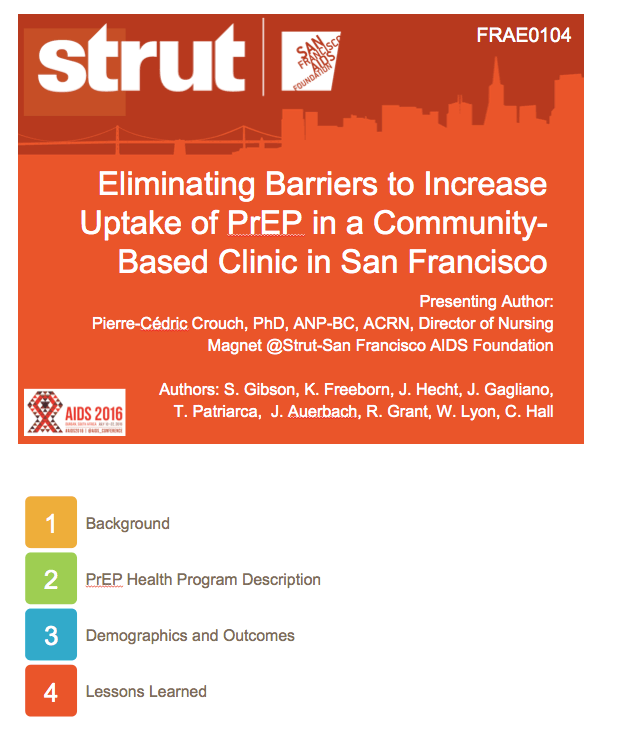
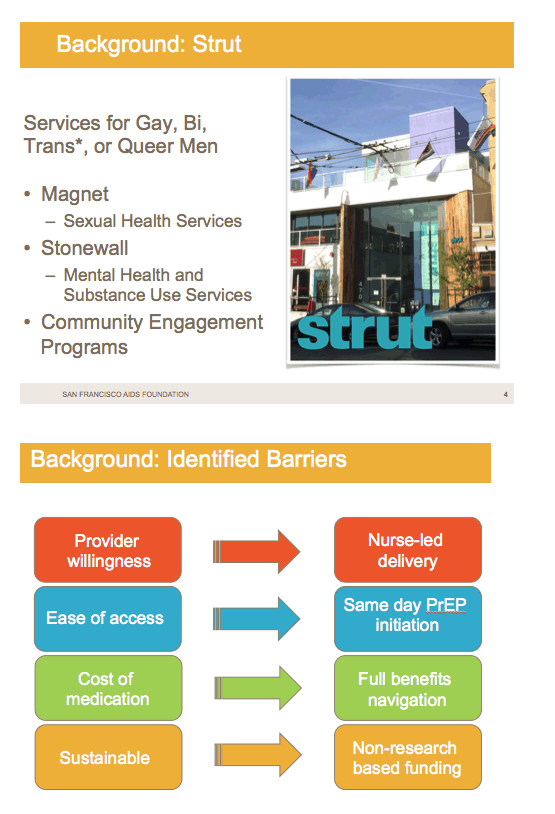
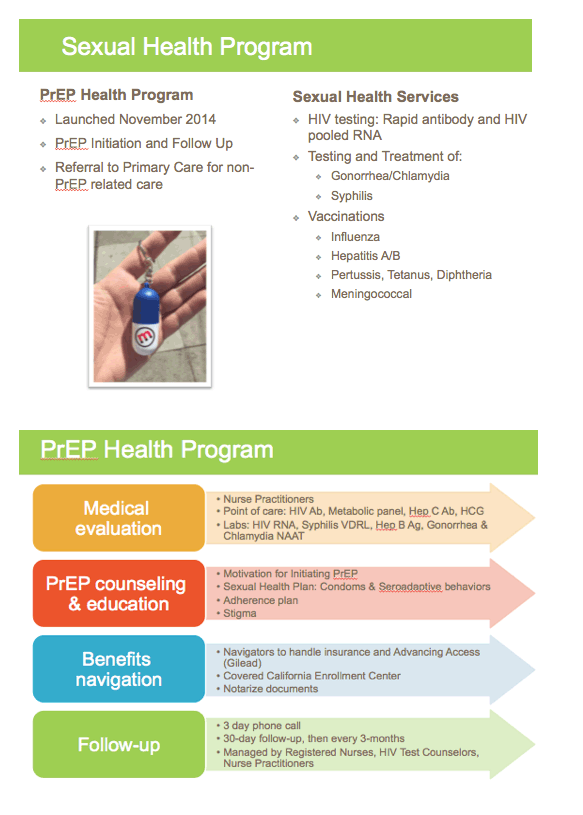
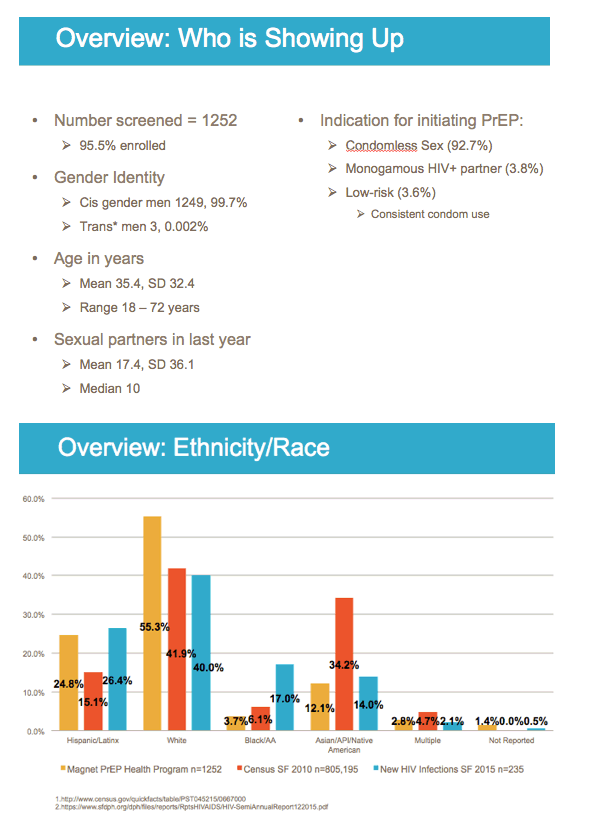
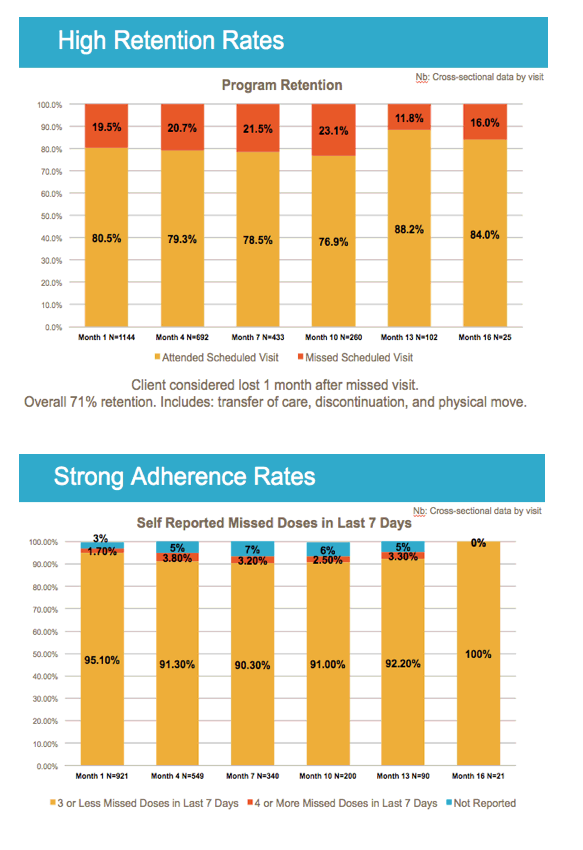
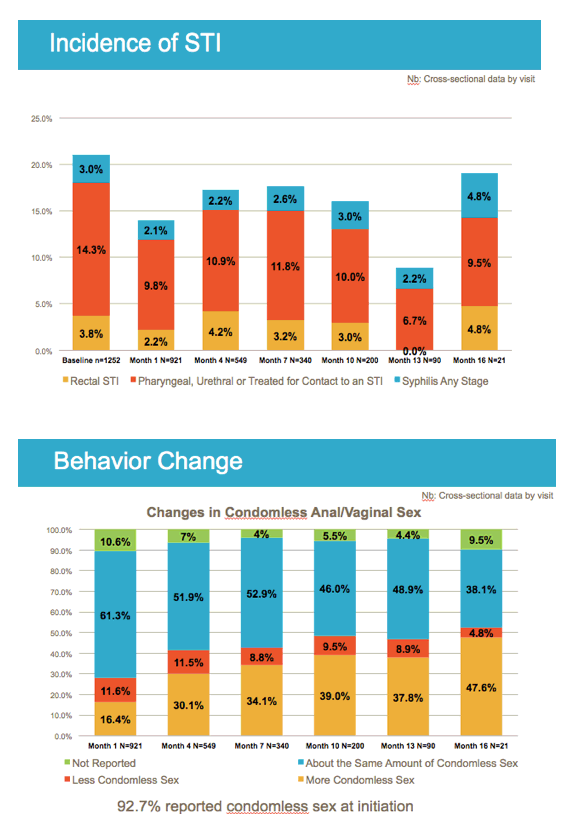
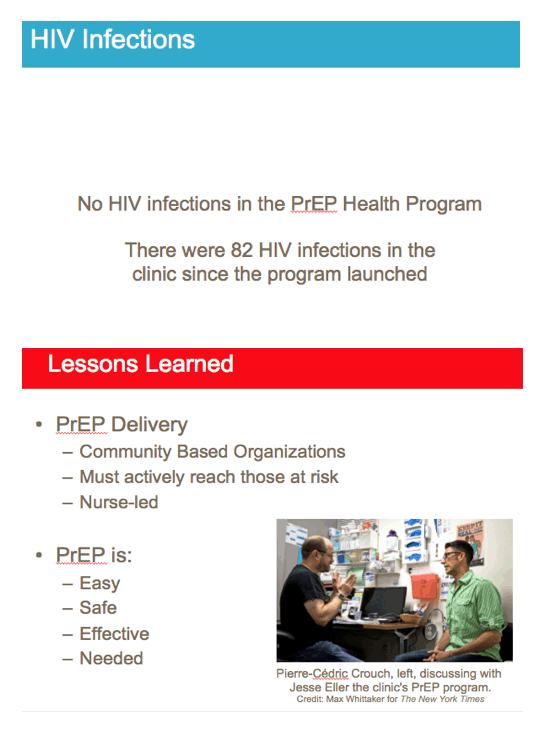
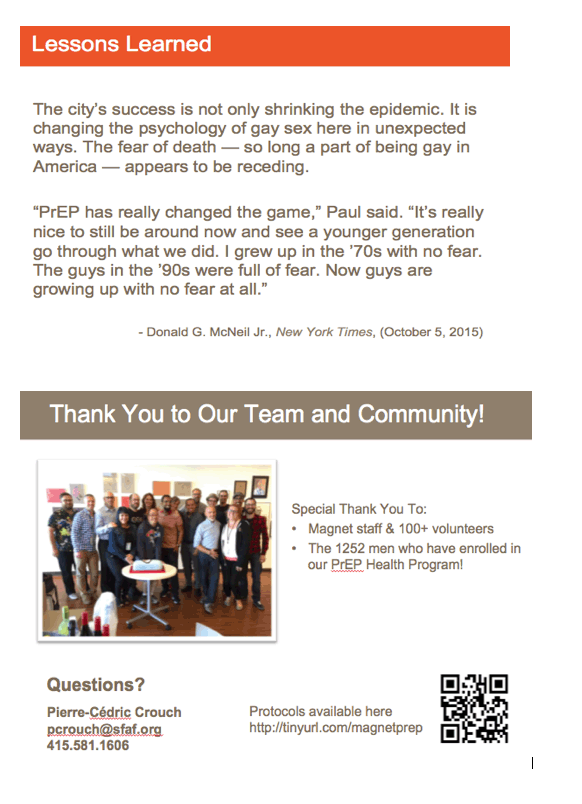
|
| |
|
 |
 |
|
|